From reduced energy levels to weight gain and an array of health issues including PCOS (polycystic ovary syndrome), low libido, and mood swings, hormones have a huge impact on overall well-being. When a particular hormone in the body is at excess or insufficient levels, the result is an imbalance of hormones.
While hormone levels can sway from time to time, some factors might contribute to hormonal imbalance such as pregnancy, menopause, and puberty. Chronic health issues like autoimmune diseases and tumors can also cause an imbalance of hormones. While hormonal imbalance can be a hard egg to crack, fortunately, a change in diet can have an incredible effect on health and help you to keep hormonal imbalance away. Come with us as we shed more light on the must-eat foods to balance your hormones naturally.
Jump to:
What are hormones?
We are sure that throughout your lifetime, you have often heard about hormones and wondered what they are. How do they affect optimal health? Hormones are chemical compounds produced by some of the body's glands and tissues. These compounds play vital roles and functions such as reproduction, metabolism, and growth.
The symptoms and signs of hormonal imbalance are difficult to generalize as the human body produces more than 40 kinds of hormones. For example, if there is a sex hormone imbalance, you might experience certain symptoms such as hot flashes, hair loss, erectile dysfunction, low libido, acne, and more body hair. A hormonal imbalance of metabolism could have symptoms like depression, diarrhea, and weight gain.
How can you balance hormones naturally?
Most of the time, it is quite difficult to prevent hormonal imbalance. However, there are approaches that one can adopt to improve overall health. One such method is making changes to general lifestyle like reducing stress, sleeping better, and physical activity.
Another major potent approach is adopting a diet that can help balance the hormones. Food is the foundation of how we offer our bodies nutrition and what we consume can have a huge impact on the hormones. Hormonal imbalance can be elevated by factors such as high blood sugar levels and inflammation. Therefore, a diet aimed at balancing the hormones must be nutrient-dense and contain foods with low glycemic index which can aid the mitigation of inflammation. Some of the foods to balance hormones naturally include cruciferous vegetables, berries, chia seeds, pumpkins, complex carbohydrates, prebiotics, and probiotics.
Nine must-eat foods to balance your hormones naturally
1. Chia seeds
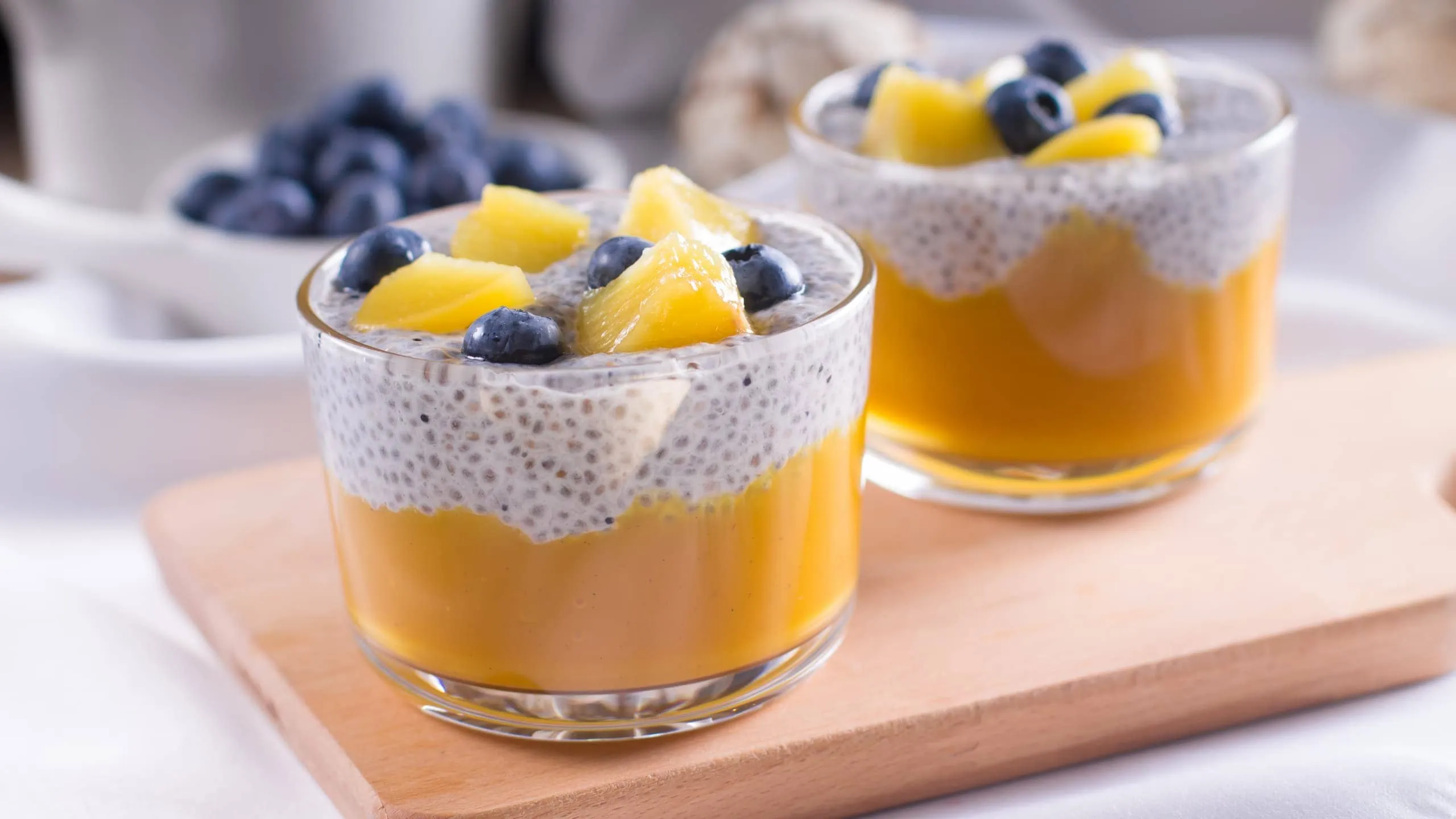
Derived from the Salvia hispanica plant, chia seeds have gained popularity for their amazing nutritional properties. These tiny seeds are loaded with diverse nutrients such as vitamins, protein, fiber, omega-3 fatty acids, and many antioxidants. Due to the fiber content in chia seeds, they can help with balancing hormones. Moreover, fiber is known to aid the regulation of insulin levels, which can have a positive impact on hormone balance. Chia seeds’ nutty flavor makes them ideal for diverse recipes.
Moreover, chia seeds not only contribute to hormone balance, but have numerous health benefits such as the promotion of heart health, alleviation of inflammation, support for bone health, and improved digestive health.
2. Apples

Apples are loaded with antioxidants that not only help balance hormones but also can aid overall well-being. Chronic inflammation can disrupt hormone balance by affecting the activity and production of hormones, leading to imbalance. Quercetin is a powerful antioxidant present in apples that can help combat inflammation, thereby potentially helping you to balance your hormones.
Apples also contain fiber that can help with weight management. This fiber composition can help the regulation of blood sugar thereby lowering your risk of developing insulin resistance. When blood sugar is stable, it can help improve emotional health and digestive health, which is generally beneficial for balancing hormones.
3. Blueberries
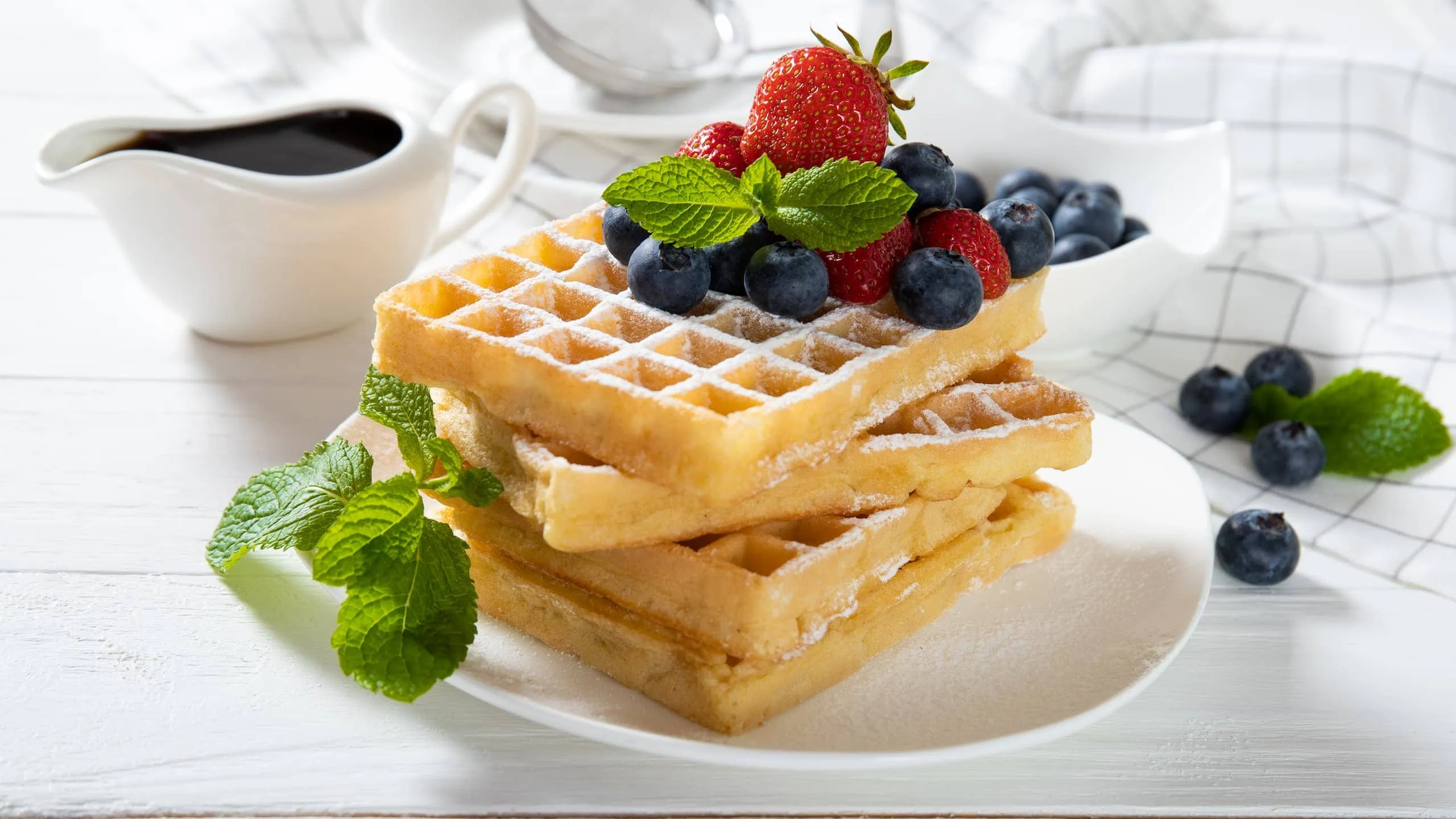
Due to their rich nutritional profile, blueberries can offer the body a wide range of health advantages such as improved cognition; protection against age-related macular degeneration, and improved digestive health. They contain powerful nutrients like vitamins C, and K and diverse antioxidants.
Blueberries are loaded with antioxidants particularly flavonoids, which have been linked to numerous health benefits including hormone balance. Some studies suggest that certain types of compounds such as anthocyanin and phenolic acids in blueberries can help regulate hormones by alleviating inflammation and regulating blood sugar levels.
4. Almonds

Almonds are nutrient-dense and are one of the foods to eat to balance hormones naturally. They contain healthy fats such as polyunsaturated and monounsaturated fats including omega-6 fatty and omega-3 fatty acids, which are renowned for their anti-inflammatory qualities. Moreover, almonds are a good source of plant-based protein, which makes them great for hormone regulation and synthesis.
In addition, almonds contain vitamin E, which is involved in the production of hormones and may help support reproductive health, especially in women. Almonds also contain magnesium and fiber, which can also aid in the regulation of hormones. Magnesium plays an essential role in many physiological functions including helping to balance hormones.
5. Avocado
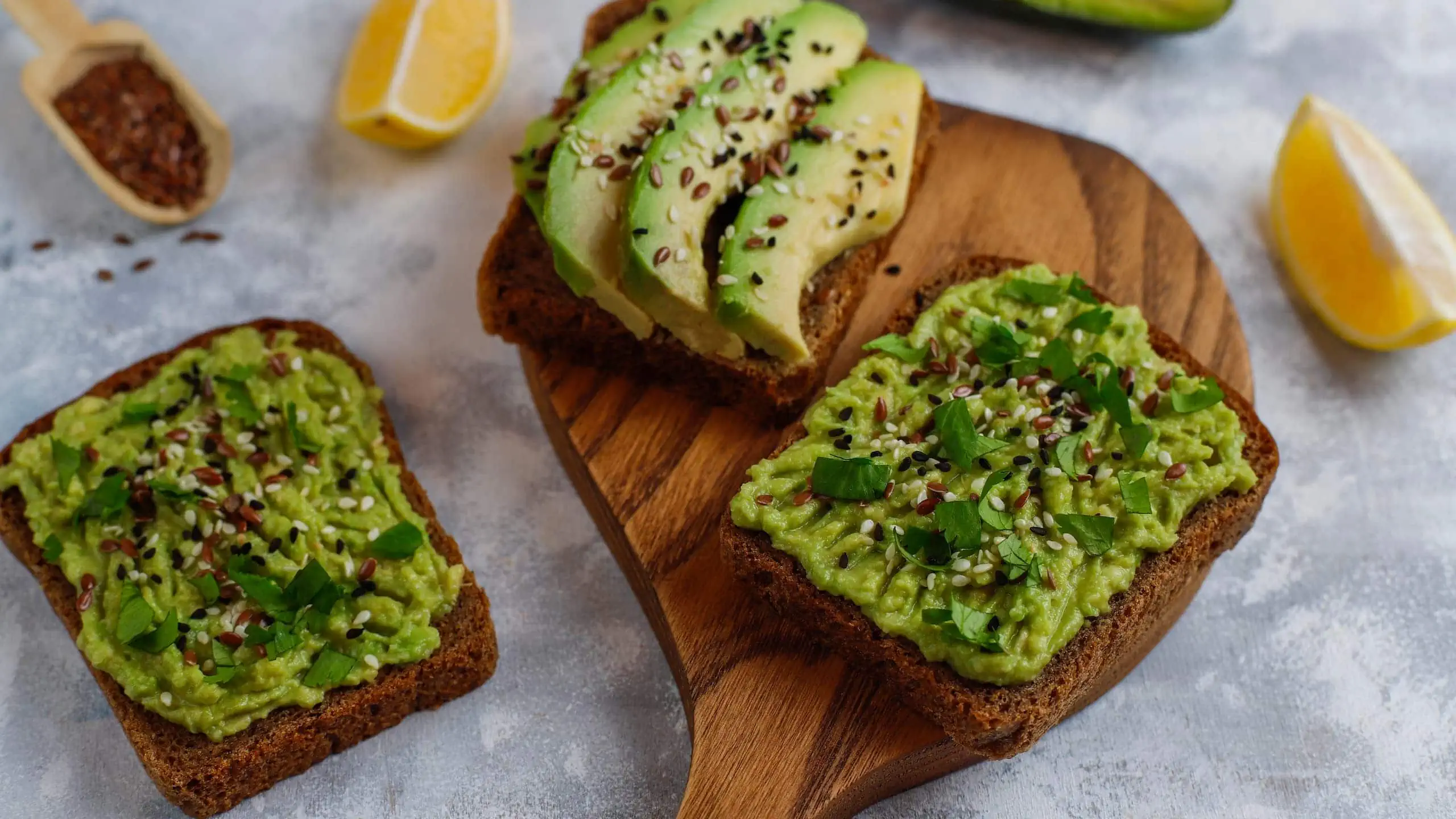
Considered one of the healthiest foods in the world, avocado can help with hormonal imbalance. Avocados contain significant amounts of fiber and healthy fats which are beneficial to hormones especially reproduction hormones like estrogen.
Avocados contain healthy fats such as monounsaturated fats that can aid in the prevention of abnormal hormone levels. These fats play an important role in the regulation and production of hormones in the body. Moreover, avocados are loaded with amazing nutrients such as vitamins K, E, potassium, and folate which can help improve overall wellness. It is important to consume avocados in moderation, as they are high in calories
6. Quinoa

Quinoa can help prevent sudden spikes in blood sugar levels because it is a complex carbohydrate with a low glycemic index. Having stable blood levels is crucial for hormonal balance, as fluctuations in blood sugar levels can interrupt the production of hormones.
Furthermore, this whole grain is packed with potent nutrients such as manganese, magnesium, folate, and phosphorus, which can aid the regulation and synthesis of hormones. Another reason quinoa is one of the must-eat foods to balance hormones naturally is that it contains phytoestrogens which can mimic the actions of estrogen. Some studies suggest that phytoestrogens can aid hormone regulation by competing with stronger estrogen hormones and reducing their efforts.
7. Broccoli

Another must-eat food to balance your hormones naturally is broccoli. This vegetable is amazingly nutritious and offers diverse health benefits. They are rich in antioxidants as well as other nutrients including vitamins A, K, and C, fiber, and folate. These nutrients can support immune functions, digestion, and bone health.
Consuming broccoli can help regulate the production of hormones, as it contains indole-3-carbinol and sulforaphane, which can help reduce the imbalance of hormones. These compounds can help regulate the levels of estrogen in the body, thereby reducing the risk of developing cancers related to estrogen such as prostate and breast cancers. Additionally, broccoli contains fiber, which can also aid the regulation of hormones.
8. Pumpkin seeds
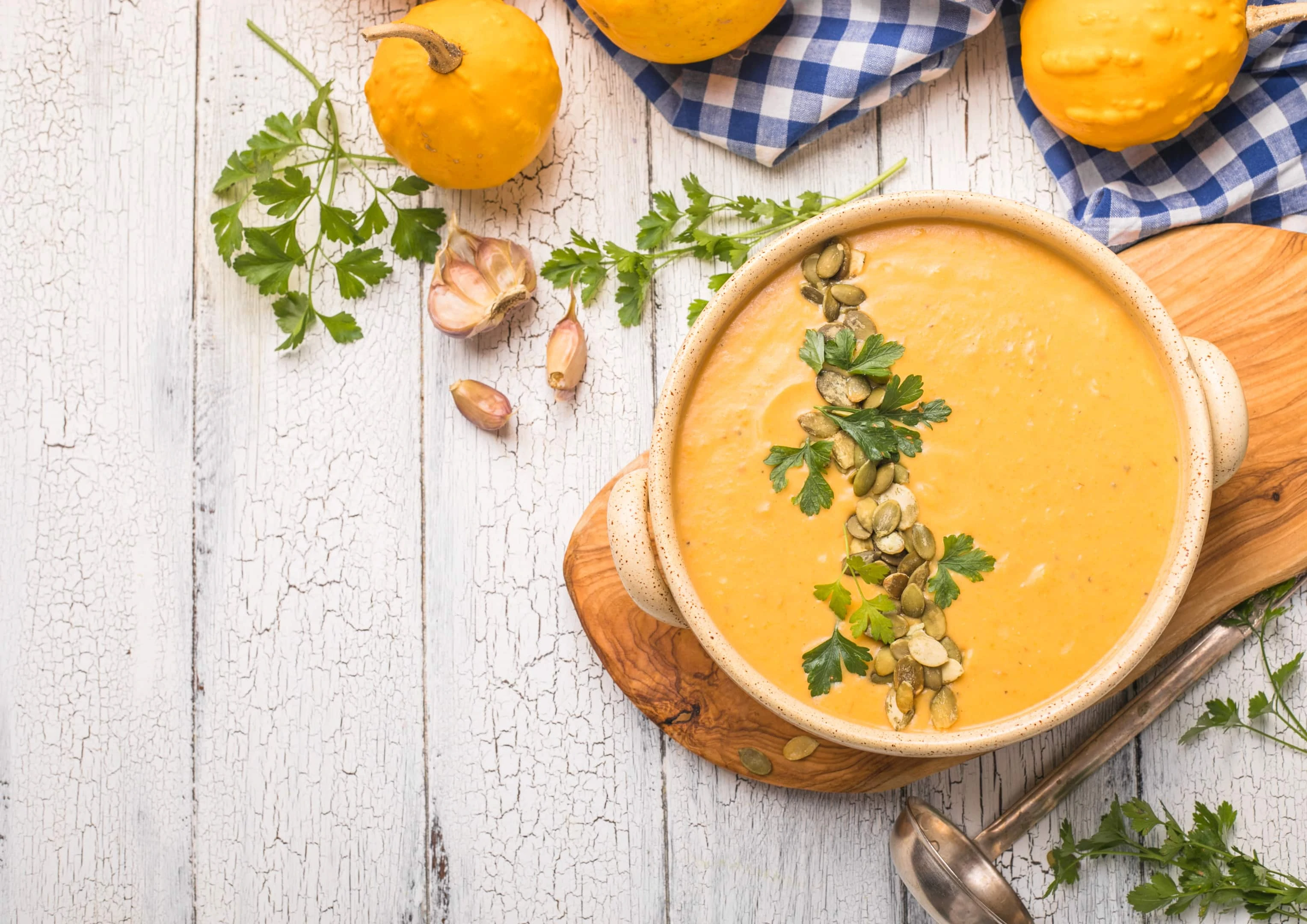
Also known as pepitas, tasty pumpkin seeds are loaded with magnesium, which works together with vitamins B5, and C to help lower stress levels. High stress levels can decrease the levels of magnesium in the body so it is difficult to aid with the regulation of hormones. However, incorporating pumpkin seeds into your diet can help balance magnesium levels thereby aiding the prevention of hormonal imbalance. To know more about foods that can help with stress, check out our article here.
Additionally, pumpkin seeds contain other nutrients such as tryptophan, vitamin E, phosphorus, and zinc which can help improve cardiovascular function, reduce inflammation, and prevent oxidative stress. Another compelling reason to incorporate pumpkin seeds into your diet is their rich fiber content, which makes them a filling and satisfying snack choice, ideal for supporting weight management goals.
9. Eggs

You have probably heard of the common saying: “an egg per day keeps the doctor away.” Why? Because eggs are nutrient-dense and can offer numerous health benefits. Eggs are a rich source of protein containing important amino acids that are necessary for body functions. Moreover, eggs contain choline, which is a nutrient that plays an important role in metabolism, liver, and health functions. Choline also supports the synthesis of phospholipids, which are crucial for the functions of cell membranes, especially those that contain hormone receptors.
In addition, eggs contain healthy fats as well as omega-3 fatty acids, which are beneficial for hormone function and production. They also contain nutrients such as vitamin D, B12, selenium, riboflavin, lutein, zeaxanthin, and iodine, which are essential for hormone balance and optimal health. Vitamin D particularly plays a vital role in regulating hormones and improving immune functions.
Conclusion
Hormonal imbalances are tough to prevent and their symptoms can reduce the quality of life. This highlights the importance of adopting a diet rich in foods to balance hormones naturally. Some of such foods include quinoa, broccoli, blueberries, pumpkin seeds, chia seeds, and pumpkin seeds. While these foods can support hormonal balance, there are also foods that you should avoid, including sugary and processed foods, caffeine, alcohol, and soy.


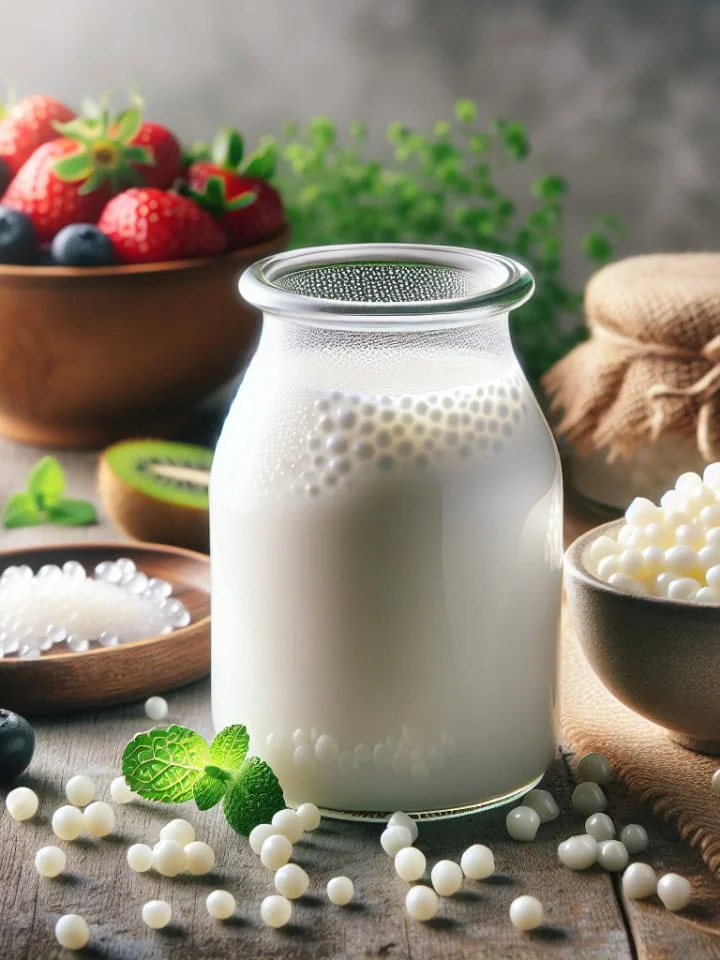
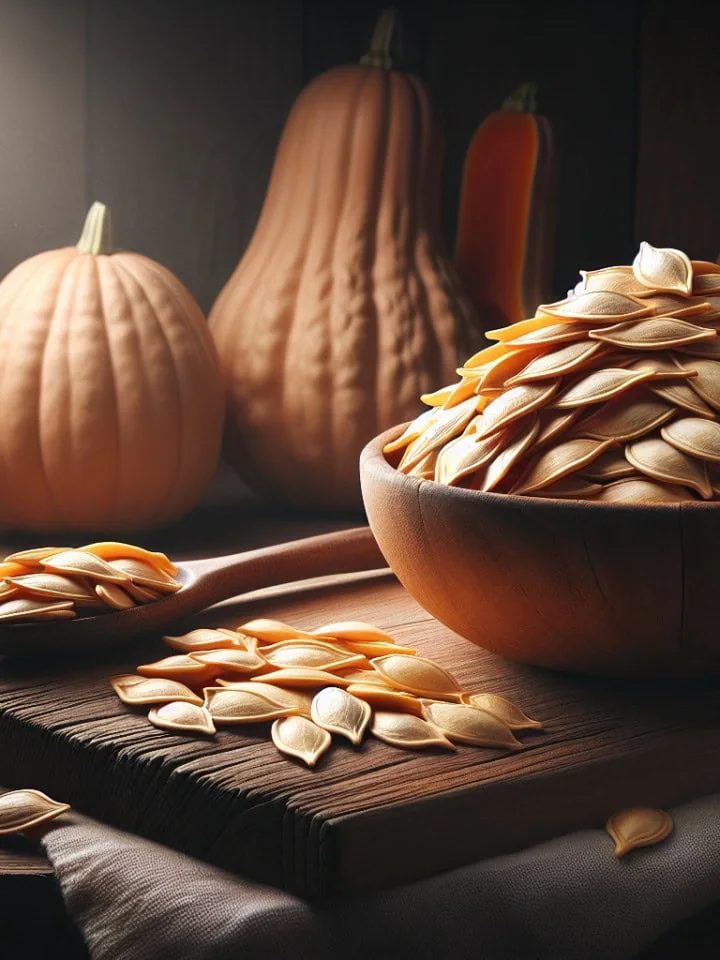
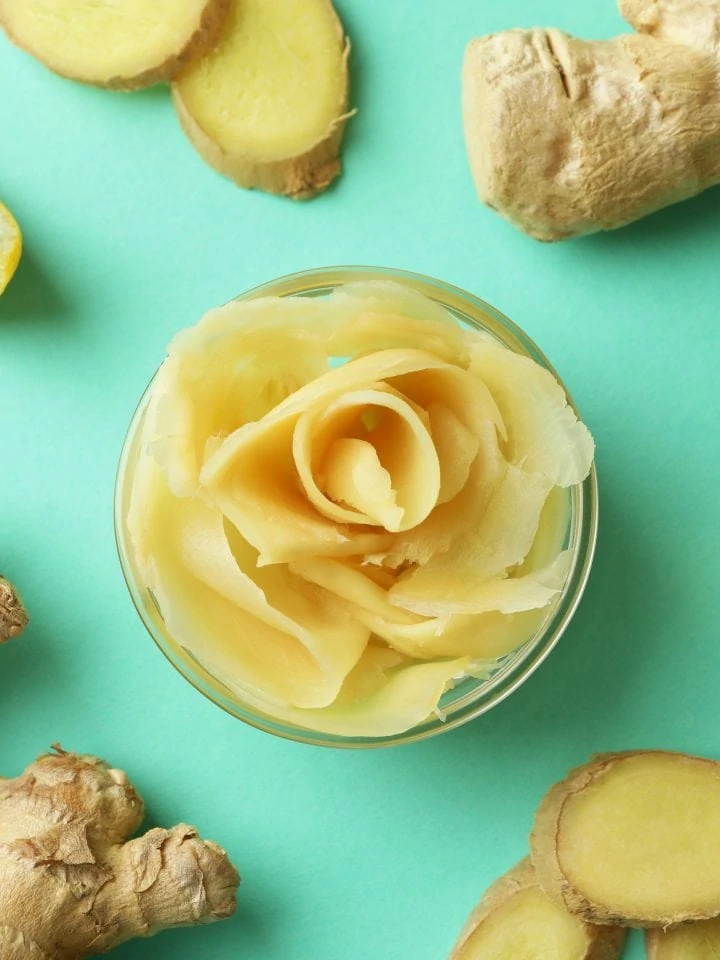
Comments
No Comments